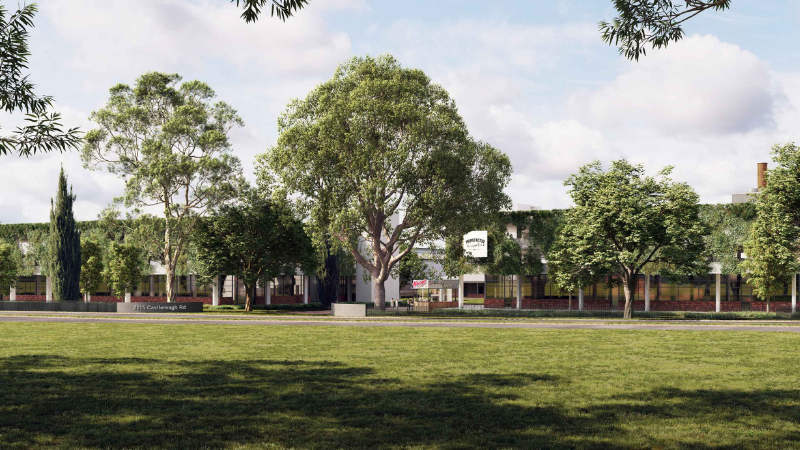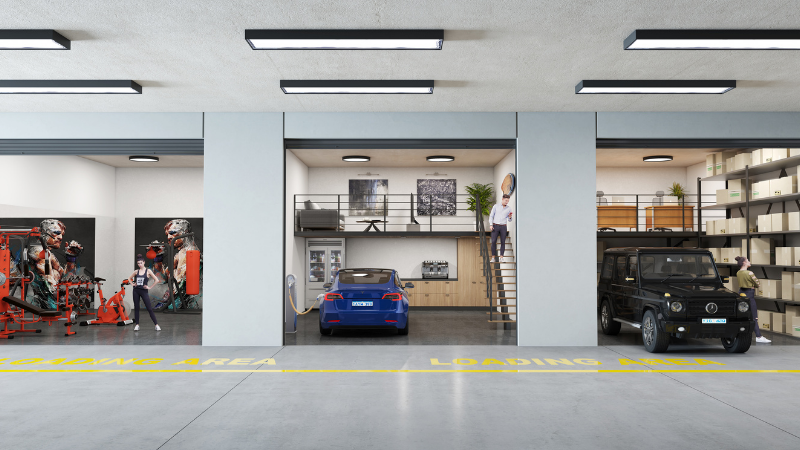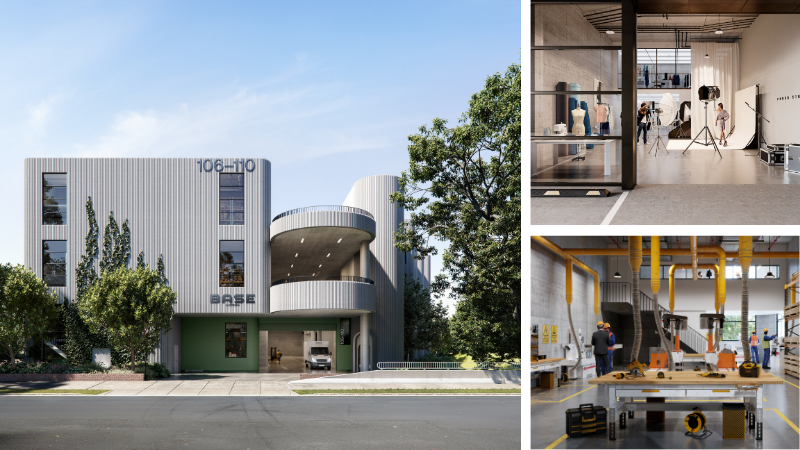Resources
Newsletter
Stay up to date and with the latest news, projects, deals and features.
SubscribeThe humble shed has given way to hi-tech robotics, automation and sustainability innovation in the industrial sector with many developers looking to capture the booming e-commerce market.
Over the next five years Australia will need another 2.4 million square metres of industrial real estate to meet the market demand.
The shift to online shopping is one of the major growth drivers, with online sales forecast to rise from 13 per cent of all sales in 2020 to 20 per cent of all Australian sales in 2025.
Here are just three of the developers leading the way for the changing industrial sector...

Hear from industry professionals about the booming industrial sector at The Urban Developer Industrial and Logistics vSummit on Thursday, 29 July, 2021. To register click here.
Penrith Manufacturing Hub
Aon Ari has plans to build a $101-million manufacturing hub in Penrith in a five-stage development process.
Aon Ari chief executive John Joannou, who will speak at The Urban Developer’s Industrial and Logistics vSummit next week, has led the acquisition and development of the site.
But instead of flattening the former Crane Copper Tube factory, the developer plans to “resuscitate” the existing buildings, breathing life into the underdeveloped site and honouring its rich manufacturing history.

The plans include the refurbishment of existing buildings, as well as new state-of-the-art warehousing and office space designed by SJB Architects, and multi-level carparks on the 12ha site.
Aon Ari plans to build a new industrial building on the site to rehouse current tenant Capral in a 10,722sq m warehouse with office space.

Flexi-unit warehouse
Melbourne industrial developer Ledlin Developments has launched its game-changing “flexi-unit” developments to attract e-commerce businesses.
Oscar Ledlin said the integrated business model allowed them to focus on their products and to deliver high-end inclusions on their industrial products.
“We’ve refined our product to have higher-end fittings than you would typically imagine in a warehouse,” Ledlin said.
“We’re doing polished concrete … nice steel-frame windows, black ceiling grids, black taps … we’re targeting a higher end user.
“We’re starting to move into the higher density commercial-industrial development that hasn’t been supported a lot in Melbourne.
“We’ve recently found a lot of success in that segment [with the flexi-unit design].”

Ledlin said small businesses and retailers had snapped up the unique industrial offering, touted as a new asset class with a commercial storage unit, a basement, co-working office space, a co-working boardroom, communal amenities.
“That’s targeting e-commerce businesses that don’t require a lot of space … and providing them with something that meets all their needs but for a fraction of the price [of a traditional warehouse space].”

Base Alexandria
Base Alexandria, another boutique industrial strata development, in South Sydney, will further test demand for this burgeoning asset class in the area.
Made Property's three-storey SJB-designed development will comprise 36 units between 62 and 221sq m, and is due for completion at the end of 2022.

The main aim of these “designer” warehouse spaces is flexibility and adaptability to create a workshop or workspace that Made Property said featured ample natural light and ventilation, and a green outlook to Sydney Park.
It’s not just design but also location that is critical to the success of these vertical strata developments, that will focus on end-mile distribution and e-commerce businesses.
Lennon Mills
An historic flour mill in West Melbourne will be reimagined to create a "cutting edge" industrial park servicing ‘last mile’ logistics providers.
The first phase of the $100 million development on the 1.5ha site would include 14,000sq m of warehouse space, showroom and creative offices, on-site food and beverage amenities, end of trip facilities and a craft spirit distillery.
Perri Projects managing director David Scalzo said sustainable design principles would enhance occupants' productivity and efficiency.
“The development’s future-focused industrial spaces will be home to advanced, high-technology manufacturing, last mile logistics and digital and creative business services — all tailored to suit leading industrial businesses and creative brands,” Scalzo said.
“The design retains and celebrates three existing former industrial buildings two concrete silos and a red brick mill—adapting and restoring them for contemporary use through modifications to allow light and circulation.”

Scalzo said the site’s historic buildings would be restored for its new industrial future, connecting its past with functional and flexible commercial and creative workplaces.
“The design retains and celebrates three existing former industrial buildings—two concrete silos and a red brick mill—adapting and restoring them for contemporary use through modifications to allow light and circulation,” he said.
The trend toward infill development and adaptive reuse is gaining momentum within the industrial sector as brownfield sites become constrained. Light industrial will increasingly be fused with residential and commercial uses within inner-city areas.
Construction on Lennon Mills Phase One is set to commence in July 2021, with completion scheduled for the third quarter 2022.
To hear more from industry experts on the key drivers shaping this booming asset class, click here.